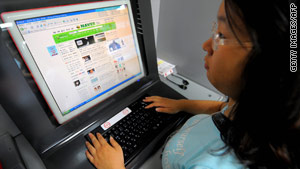Why Internet connections are fastest in South Korea
South Korea is known for having the fastest broadband Internet connections in the world.
People in the United States basically invented the Internet. So U.S. connections must be the fastest and cheapest in the world, right?
Not so much.
Broadband Internet speeds in the United States are only about one-fourth as fast as those in South Korea, the world leader, according to the Internet monitoring firm Akamai.
And, as if to add insult to injury, U.S. Internet connections are more expensive than those in South Korea, too.
The slower connection here in the U.S. costs about $45.50 per month on average, according to the Organization for Economic Cooperation and Development. In South Korea, the much-faster hookup costs $17 per month less. An average broadband bill there runs about $28.50.
Advertisement
So why is U.S. Internet so much slower and pricier than broadband connections in South Korea? The question is timely, as the U.S. government pushes forward with a "broadband plan" that aims to speed up connections, reduce costs and increase access to the Internet, especially in rural areas.
The comparison between South Korea and the United States is not perfectly instructive, especially since "we probably won't ever be South Korea," said Robert Faris, research director at Harvard University's Berkman Center for Internet & Society.
"The whole political and social climate is so different, the geography is different, the history is so different," he said. "It's all pretty different."
With those caveats in mind, here are the five potential reasons U.S. Internet speeds are slower and more expensive than those in South Korea. This list was gleaned from interviews with broadband experts and from policy papers:
Korean competition
Countries with fast, cheap Internet connections tend to have more competition.
In the U.S., competition among companies that provide broadband connections is relatively slim. Most people choose between a cable company and a telephone company when they sign up for Internet service.
In other countries, including South Korea, the choices are more varied.
While there isn't good data on how many broadband carriers the average consumer has access to, "I think we can infer that South Korea has more [competition in broadband] than the United States," Faris said. "In fact, most countries have more than the United States."
Some academics, including Yochai Benkler, co-director of the Berkman Center, have criticized the U.S. government's broadband plan as not doing enough to create the kind of competition that is present in other countries.


Tidak ada komentar:
Posting Komentar